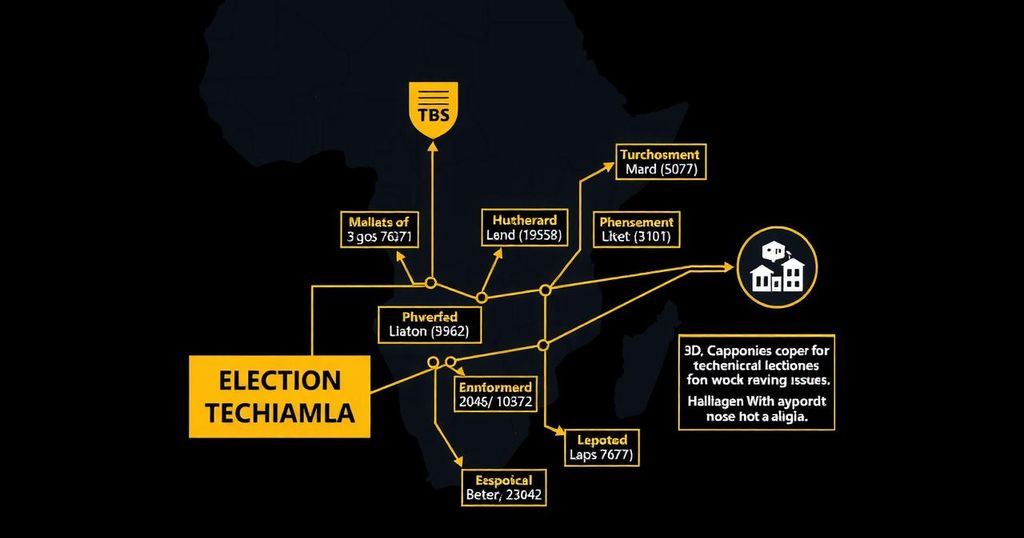Namibia Extends Election Voting Amid Technical Issues and Opposition Claims

Namibia’s voting period for the presidential and parliamentary elections has been extended due to ballot shortages and technical difficulties, prompting allegations of illegal practices from opposition parties. These issues have caused significant voter frustration as many remain unable to cast their ballots, reflecting deeper economic concerns within the country.
Namibia’s electoral authority has prolonged the voting period for its presidential and parliamentary elections due to significant technical difficulties and a shortage of ballot papers. Originally scheduled to conclude on Wednesday, the election will now extend into Saturday evening. The move has faced vehement opposition from the Independent Patriots for Change party, which has labeled the extension as illegal and as a potential manipulation of the election process.
Reports indicate that numerous polling stations suffered from logistical issues, leading to long wait times, especially in rural areas. Voters expressed frustration at the delayed access to ballot papers, with many still unable to cast their votes days after the initial polling date. Elsie Nghikembua, the chairperson of the Electoral Commission, stated that they were working to resolve these challenges, although doubts among the electorate persist.
The prolonged election period in Namibia coincides with political unrest in Mozambique, where allegations of electoral fraud have sparked violent demonstrations. Netumbo Nandi-Ndaitwah, the 72-year-old vice president and candidate of the ruling SWAPO party, aspires to be Namibia’s first female president. However, she encounters fierce competition from a disillusioned youth demographic seeking change in a country that, despite its upper middle-income status, grapples with high inequality and unemployment.
Historically, Namibia’s elections have been viewed as credible. Nonetheless, the ruling SWAPO party, which has maintained power since the country’s independence in 1990, faces scrutiny due to mounting frustration among the electorate regarding economic challenges. The current climate reflects a broader pattern across Southern Africa, where young voters increasingly demand new leadership to tackle entrenched issues.
Namibia has recently faced challenges during its presidential and parliamentary elections, including shortages of ballot papers and logistical issues at polling stations. These complications have raised concerns about the integrity of the electoral process, especially in light of similar incidents occurring in neighboring Mozambique, where accusations of vote rigging have led to unrest. Historically, elections in Namibia have been seen as credible and the SWAPO party has consistently held power since the country’s independence.
In summary, Namibia’s decision to extend voting amidst technical difficulties has ignited opposition allegations of electoral fraud and raised uncertainty among voters. The frustrations expressed reflect systemic issues within the country’s logistical framework for elections. Amid this backdrop of electoral contention, Namibia’s political landscape is poised for potential changes as emerging voices demand accountability and representational reform.
Original Source: abcnews.go.com






